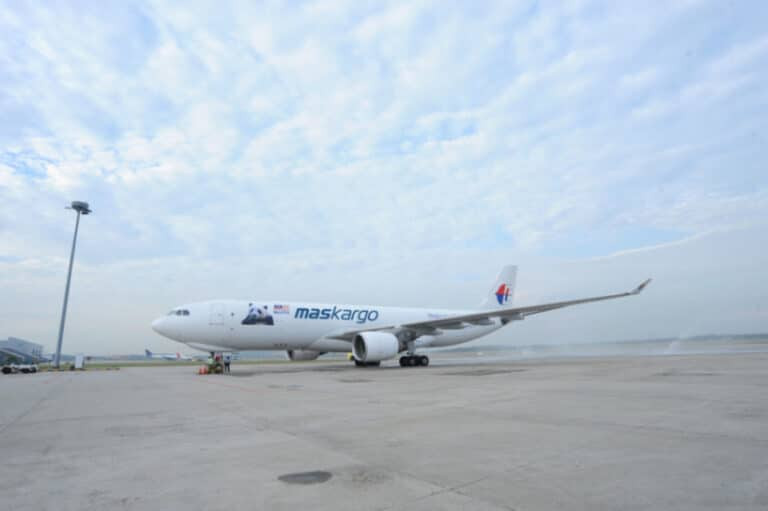MASkargo is targeting expanding its network into India this year, according to the carrier’s chief executive officer, Ahmad Luqman Mohd Azmi.
Speaking to Air Cargo Week at the Air Cargo India conference and exhibition in Mumbai today, he says another freighter route into the booming Indian air cargo market, the second fastest growing market in the world, is on the radar.
MASkargo now operates freighters twice a week into India, servicing Chennai and Bangalore, but on the belly side also covers Delhi, Chennai, Bangalore and Mumbai.
Azmi explains: “This year we are looking at expanding into Delhi or Mumbai with a freighter service. It is mainly for business opportunities to China and the huge movement of e-commerce, as well as electronics especially mobile phones between China and India. We are trying to be a player in these market sectors.”
These routes would target cargo trade lanes from India to Malaysia and on to Australia and India via Malaysia to China.
As part of the rebranding and organization of Malaysian Airlines, MASkargo is run separately from the airline, which has suffered in the last two years after the disappearance of MH370 in March 2014 and the shooting down of MH17 over Ukraine in July 2014.
MASkargo is also reorganising its fleet and is exiting use of the Boeing 777 Freighter and is concentrating solely on operating the Airbus A330 Freighter. Azmi says: “With the 330 operations it put us within a seven to eight hour radius from Kuala Lumpur radius, which makes India an important market for us.
“We will also continue to be a key player in the Malaysian market and linking to key trading partners such as India, China, Europe and Australia.”
Malaysia’s economy grew by five per cent in 2015, but Azmi says the economic climate is very much in tandem with the rest of the globe, and there has been a slight decline in exports, but he expects this to only be short-term.
He explains: “The beauty is we are central in Asia so we can get trade into Indonesia, Vietnam, and other South East Asian countries and fly from KL as a hub.
“The plan is to target cargo within a seven to eight hours radius expansion and with a high population there is a lot of goods moving in this area.”
MASkargo’s core business and network will always be intra-Asia business, which makes up 30-40 per cent of the carrier’s load, but it is also focusing on Europe and Australia.
As for 2016, Azmi says: “This year is all about surviving, because overall the air cargo market will not be that interesting, but we believe by late 2017 and into 2018 the air cargo market will grow and expand.”




